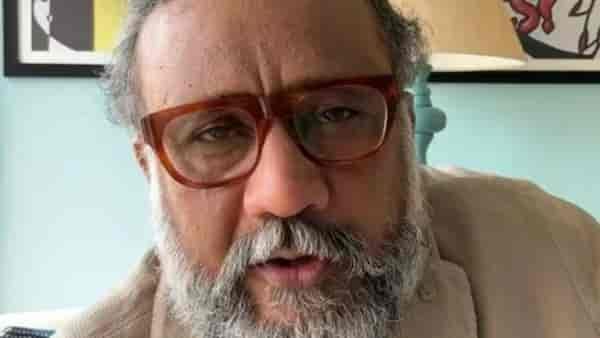Exclusive! Anubhav Sinha: Before OTT, movies released on TV but theatres didn't die
Anubhav Sinha's Bheed is now streaming on Netflix

Last Updated: 12.41 PM, May 31, 2023
There was once a world where the TV was first introduced in Indian homes. Slowly, theatres started becoming popular, and now, in the post-pandemic era, OTTs have become the trend. While many filmmakers feel that OTT is the present and future, most also believe in the power of theatres. Anubhav Sinha is one such filmmaker who believes that theatres will not die because they are an experience, unlike TV or OTT.
The filmmaker spoke to OTTplay about his film Bheed, which was released on OTT, what his process for making films is like, and whether he would make more films out of the subjects he came across while researching for Bheed.
Excerpts from the interview…
Bheed is a sensitive topic. Would you say that the web is more accepting today than theatres, especially with such sensitive subjects?
These are strange times. The audiences are not very kind to theatrical releases right now or even in the past two years. They haven't been kind to the otherwise traditional Bollywood potboilers. Two films have done well. It's not fair to look at it as if one film is meant for theatres and the other for OTT. OTT is a TV in a way. It can be seen and consumed on TV. Theatres is a community experience. You sit and watch a film with a few other people who are strangers. You connectively experience a film. You share the love, you hear the cry, the silence. I don't think it is about what is on screen. It is about what experience you want to have as an audience. You want to experience getting into your car, go to the theatres, be with some strangers, share a smile next to a stranger, watch a film and have a collective experience in the darkness, as opposed to sitting at home and watching the film while you are cooking or having a drink. That's another experience. It is solely dependent on the person going to consume the content/film. Which experience does he want? Since the past two years, he has chosen to not have the other experience. I don't think it has anything to do with films. It is his will to not have that experience.
Would you say that the audiences are divided, that there are people who watch films on OTT and there are people who go to theatres? Do you feel that divide has come and the audiences are different too?
The past two years, the audiences have chosen to opt out of the theatrical experience. Maybe right now they are getting happy thinking they can watch it two weeks later on OTT but the theatre was never only about consuming content. Before OTT, the movies also came on TV but theatres didn't die. Now there's OTT, which in a way, is an extension of TV. So, the film will of course release there but do you not want to have the theatrical experience of a film? Yes, right now, they don't but yes, we will. It has happened in the past and is happening in the world but they will come back to the theatres for the experience. Let's say for example, you watch Lagaan or Pathaan at home vs watching Pathaan in theatres. People are jumping, dancing and what not in theatres. You can't do that at home. That's a community experience. I don't think OTT and theatres are in competition. Even if they are, not for long.
For someone who started with a film as romantic as Tum Bin, to now taking up subjects that need to be addressed, how have you seen yourself grow into the filmmaker you are today?
I have greyed down my head. That's all that it is. My first show was also fairly dark.
You often receive praises for the subjects that you pick for your films. Tell me about your process. Where do you get your inspiration for the movies?
Sometimes it's about an individual, the other times something else. The triggers are different. Sometimes, it's a news item. Sometimes, it's a person that you know. That trigger can then take you into news items and the sociology of it.
What is your process like? What are your next steps after reading the news article?
I read a lot of books actually. There are books which are of 800 pages. I read them. When you go into a world that you don't know well enough, then there's a lot of reading and watching that goes into it. It takes months.
Any research material that has stayed back with you?
All of it.
What about when you were researching for Bheed? Which was the one moment that shook you too?
I looked at the few journalists out on the streets. They were travelling and reporting. We put together hours and hours of that material. It was so revealing and shocking. It is also what kept conveying me everyday to make this film.
If you weren't able to bring all of the stories in Bheed, do you plan to make more movies and address the subjects?
Not now. I'm not thinking about any film right now. I'm working on something else at the moment.

 Premium
Premium